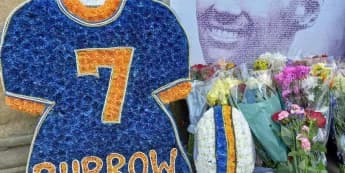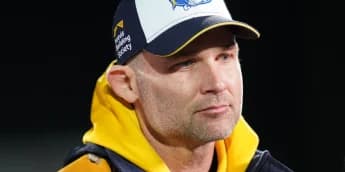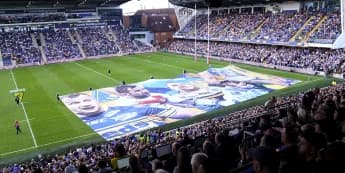"Salford Red Devils face a financial upheaval as uncertainties mount over their sustainability, prompting urgent calls for funding amid concerns over mismanagement and the club's very future in the Super League."
The financial crisis affecting Salford Red Devils has once again come to the forefront, prompting intense discussions among the Super League. On Thursday, CEO Paul King made a plea for an urgent advance of £500,000 in central funding to his Super League peers—an urgent action meant to tackle rising cash flow issues that could jeopardize the club's survival before the end of the year.
Central to the crisis is the takeover of the club's stadium by Salford City Council, which was anticipated to create new sources of income but has yet to produce the desired results. King’s presentation highlighted the disparity between what was hoped for and the current situation, leaving ongoing concerns regarding the club’s long-term financial viability.
The Super League's choice to postpone discussions until Monday highlights the prevailing uncertainty. Representatives from the clubs have called for a more transparent financial strategy from Salford, as Thursday's meeting did not offer adequate reassurances. An insider described the plea for emergency funding as similar to 'attempting to patch up the Titanic while it's sinking.'
In spite of their difficulties, Salford's approach to recruitment has come under scrutiny. CEO King defended the high-profile acquisitions of players like Esan Marsters and Chris Hill for the 2025 season, claiming they were based on expected income from the stadium agreement. Nevertheless, detractors contend that this level of expenditure is irresponsible considering the club's ongoing challenges.
The doubts are exacerbated by the recent acquisitions of Joe Bullock and Justin Sangare, which took place only a few weeks ago. Many are beginning to wonder if the leadership at Salford was genuinely oblivious to the club's financial troubles during that period.
Compounding the issue is the club's hesitance to offload players—a tactic that has already led to the exits of Tyler Dupree, Brodie Croft, and Andy Ackers over the last 18 months, which brought in six-figure transfer fees. King argued that these departures adversely affected season ticket sales, yet Super League officials have stressed that additional player sales may be necessary to prevent financial collapse.
Salford's financial difficulties are longstanding, as the club has consistently depended on temporary solutions to remain viable. In the last two years, they have secured various financial aids, including three contributions from Salford City Council amounting to over £530,000, along with a £364,270 investment from a Community Share Scheme initiated by fan contributions. Nevertheless, the Red Devils continue to face significant uncertainty.
The loans secured to manage operational expenses have heightened worries regarding their sustainability, particularly without significant, reliable revenue sources. The meeting on Thursday has left many with doubts, raising questions about the club's ability to successfully emerge from these tumultuous financial challenges.
A decision regarding Salford's request for funding is anticipated on Monday; however, even if it is favorable, it would merely provide a momentary relief. As fans and stakeholders grow increasingly impatient, attention will certainly turn to the club's management and their capability to establish a viable and sustainable future.
Following Thursday's meeting, Salford stated that the postponement was intended to grant additional time for reviewing documentation; however, sources close to the situation have indicated that it was a straightforward instruction to deliver more comprehensive financial disclosures.
The circumstances at Salford serve as a stark reminder of the difficulties that smaller Super League clubs encounter when trying to strike a balance between ambition and financial responsibility. For the Red Devils, the upcoming days may be crucial in deciding if they continue to participate in the league—or if they become yet another warning story of mismanagement within professional rugby league.







